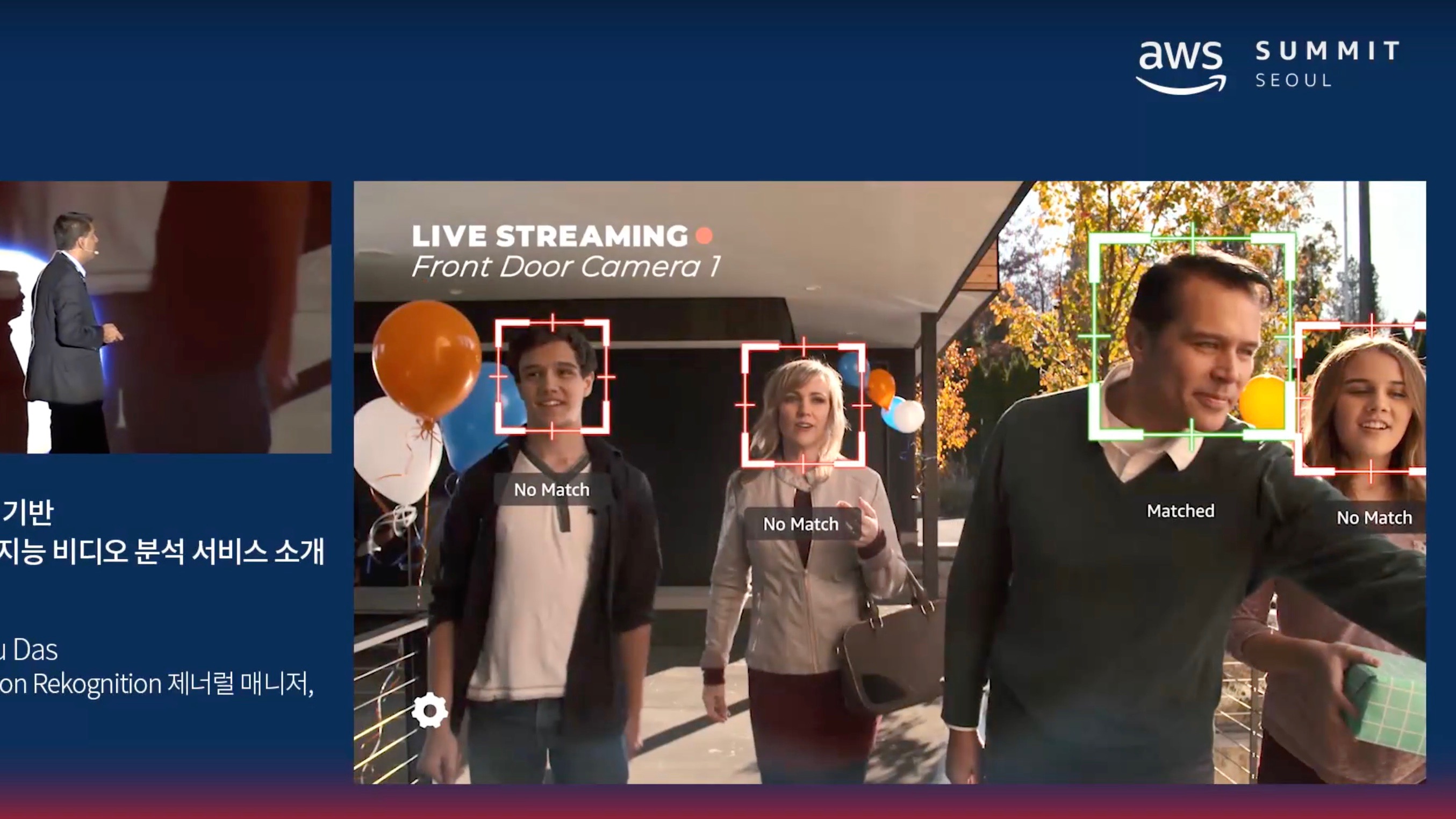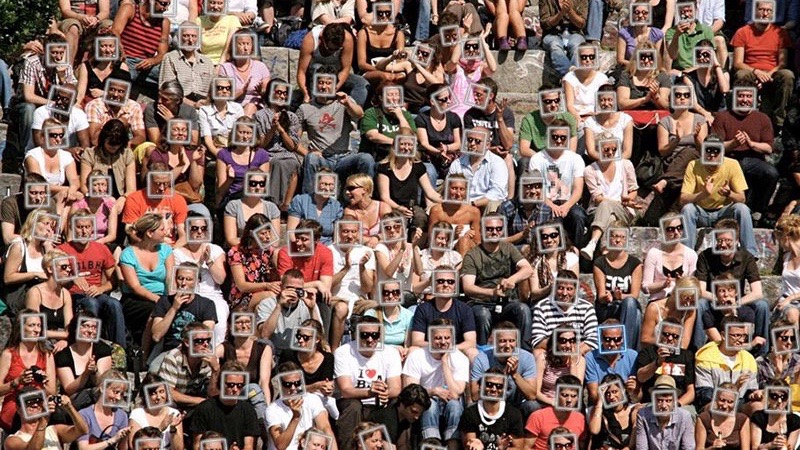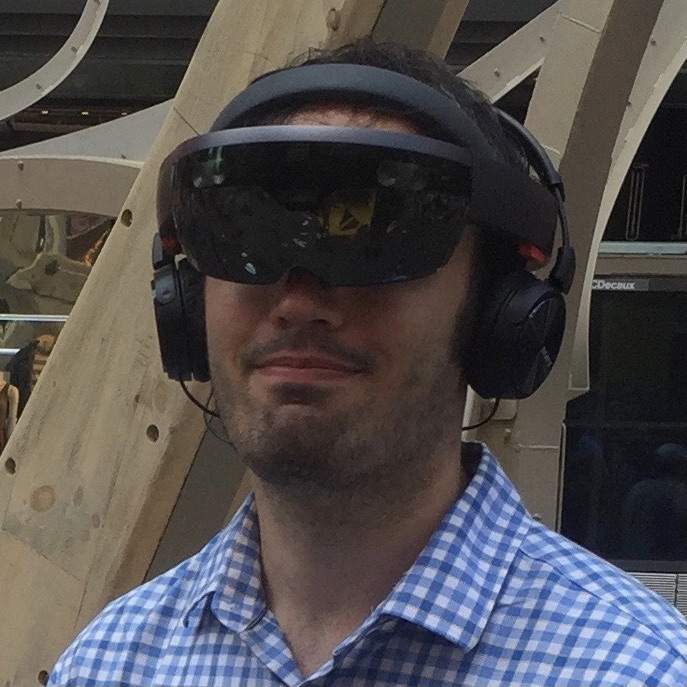Amazon facial recognition tech is being used by US police departments
Amazon's Rekognition is raising eyebrows

Police departments in Orlando and Oregon’s Washington County are using Amazon’s facial recognition AI, in conjunction with body and security cameras, for real-time background checks to detect potential criminals in the act, or persons of interest.
The ACLU published the information on Tuesday, based on documents and marketing materials it obtained.
The organization reported that in 2017, Oregon sheriffs used Amazon Web Services (AWS) to build a mobile app connected to Amazon’s facial recognition AI, Rekognition.
With the AI, deputies can take screen shots from security footage and scan a database of mugshots for potential matches in record time.
For this technology, Washington County pays around $10 per month, the Washington Post reported.
In Orlando, no human input is required. Instead, Amazon has partnered with the police department to connect the Rekognition AI directly to cameras in the city.
According to the ACLU, Amazon has provided extensive customer support to Orlando with the aim of the city serving as a proof of concept to other muncipalities.
Sign up for breaking news, reviews, opinion, top tech deals, and more.
Rekognition project director Ranju Das detailed the results of the Orlando program during a recent Amazon Web Services (AWS) event.
Thirty-three minutes in, Das shows footage from “a traffic cam provided by the city of Orlando”, and Amazon’s ability to spot human faces instantly.
“Authorized cameras are then streaming the data,” Das continued. “We are a subscriber to the stream, we analyze the video in real time [and] search against the collection of faces they have.”
However, the Orlando PD told NPR in a statement that the city “is not using the technology in an investigative capacity or in any public spaces at this time."
Washington County Deputy Sheriff Jeff Talbot, meanwhile, told the Post that the database they pull from only contains public record data and that accessing this data instantaneously is valuable, but is “not mass surveillance or untargeted surveillance”.
He gave no data on whether the app had helped the department make any arrests.
Pulling from the mugshot database could cause the system to unfairly target certain people: most police precincts nationwide keep the mugshots of those found innocent of crimes, or arrested but never charged, on file.
The ACLU warned in its statement that if more police departments and sheriff offices deploy this technology, then police could use body cameras to record the names of people attending a political protest, or to disproportionately target minority communities with facial recognition scans.
In a joint open letter to Amazon CEO Jeff Bezos, the ACLU and other citizen activist groups demanded that, “Amazon stop powering a government surveillance infrastructure that poses a grave threat to customers and communities across the country."
In response to a request for comment from TechRadar, an AWS spokesperson provided the following statement:
"Amazon requires that customers comply with the law and be responsible when they use AWS services. When we find that AWS services are being abused by a customer, we suspend that customer’s right to use our services.
"Amazon Rekognition is a technology that helps automate recognizing people, objects, and activities in video and photos based on inputs provided by the customer. For example, if the customer provided images of a chair, Rekognition could help find other chair images in a library of photos uploaded by the customer.
"As a technology, Amazon Rekognition has many useful applications in the real world (e.g. various agencies have used Rekognition to find abducted people, amusement parks use Rekognition to find lost children, the Royal Wedding that just occurred this past weekend used Rekognition to identify wedding attendees, etc.).
"And, the utility of AI services like this will only increase as more companies start using advanced technologies like Amazon Rekognition. Our quality of life would be much worse today if we outlawed new technology because some people could choose to abuse the technology.
"Imagine if customers couldn’t buy a computer because it was possible to use that computer for illegal purposes? Like any of our AWS services, we require our customers to comply with the law and be responsible when using Amazon Rekognition."
'Crowd mode face detection' and more
To attract customers to its service, Amazon and Rekognition have been completely open about the potency of the surveillance technology.
In an AWS Machine Learning blog post late last year, Das detailed how Rekognition was updated to “perform real-time face searches against collections with tens of millions of faces”, reducing latency by 5x to 10x from previous iterations.
He then described how the API could now “detect, analyze, and index up to 100 faces”, in order to “accurately capture demographics … for all faces in group photos, crowded events, and public places”.

“Now we can easily detect all the faces in one go without any complicated preprocessing”, Amazon quoted one client as saying.
In other words, it can help to catalogue the ages, gender and ethnicity of a crowd at an event in order to better target advertising.

In other posts, Amazon gave coding advice for how to train systems to track down persons of interest or train live streams to scan faces.
Public or private entities can now easily implement this tech with Amazon’s help, and people being filmed will be none the wiser that they can now be instantly identified. Sky News, for instance, used the API to scan the faces of guests at last weekend's Royal Wedding.
Of course, Amazon isn’t the only company to use open source AI technology to shop facial recognition to companies.
Microsoft Azure’s Face API compares photos to see if a tagged person in one photo matches faces in other photos. Facebook has done the same for years, and has faced user privacy complaints as a result.
- Here's why facial recognition software is far from flawless
- Start seeing in virtual reality with the best VR headsets

Michael Hicks began his freelance writing career with TechRadar in 2016, covering emerging tech like VR and self-driving cars. Nowadays, he works as a staff editor for Android Central, but still writes occasional TR reviews, how-tos and explainers on phones, tablets, smart home devices, and other tech.